|
I admit we weren’t dancing on the tables. It wasn’t that wild, but there was some heady acorn beer. And there’s the clue. Every dish was enriched with wild plants foraged by Stefano Pucci, the environmental guide whose walks I often go on. After a week of over-indulgence, practically a legal requirement for Christmas and New Year festivities in Italy, I look back with pleasure on that convivial meat-free meal I had in October at the trattoria and micro-brewery La Collina at Loppeglia (Pescaglia). Stefano has been foraging for wild plants since he was a boy. He’s never happier than when in his beloved woods on the slopes of the Alpi Apuane mountains, and nothing is too much trouble or too time-consuming for him. The acorns, for example. He collects them, cleans them and mills them by hand with patience and care. I daren’t ask how many hours of labour this entails, especially since he collects enough for Alessandro, the master brewer at La Collina, to make a batch of excellent acorn-flavoured beer named Driadi. Whoa! Aren’t acorns poisonous? I remember learning when studying anthropology at Berkeley that California Coast native Americans had figured out how to remove the toxins. Maybe I’m misremembering; it was a long time ago. Stefano reassures me that they’re not dangerous, and I’m still here to tell the tale. In the kitchen Paola worked her magic on Stefano’s foraged plants and interesting varieties of more common plants from his vegetable garden. The Annotated Menu Dish by Dish Nido di polenta al pesto Ombelico di Venere Nest of polenta with pesto of Venus’s navel It’s called navelwort in English without specifying whose navel, and Umbilicus rupestris in Latin. It’s a fleshy plant in the stonewort family (Crassulaceae). Stefano adds that it was an important food of mediaeval pilgrims. ‘Wort’ was used in English names of plants and herbs used for food or medicinally. Perhaps coincidentally but then again maybe not, wort is also the sweet infusion of ground malt or other grain (not to mention acorns) before fermentation, used to produce beer and distilled malt liquors. Who would have guessed this is what Venus’s navel looked like? I checked out Botticelli’s painting ‘Venus and Mars’ (‘Venere e Marte’), but she’s fully clothed. Crostone con pomodoro fresco al Satiro Large toast with fresh tomato and Satyr’s herb In Greek and Roman mythology satyrs were lustful, drunken woodland gods. Drinking acorn beer, no doubt. From the libidinous to the botanist (not to imply that a botanist can’t be debauched), the scientific name is Satureja montana. In English we call it winter savory, which might sound less lascivious, but savoury can mean spicy and piquant. Maccheroncini ai porcini della selva pescaglina Maccheroni with porcini mushrooms from the Pescaglia woods Maccheroni in this part of Italy isn’t elbow macaroni. It’s thin squares or rectangles of egg pasta, usually made by hand, as it was in this case. Casarecce all'aglione Casarecce with giant garlic Casarecce are a type of short, dry pasta. Stefano explained that aglione dates from Etruscan times and comes from the Val di Chiana, southern Tuscany. He grows it in his vegetable garden. It doesn’t contain alliin, the chemical which, when exposed to air, is metabolised to allicin which gives normal garlic its strong, characteristic smell and flavour. Finally I understand the dish you often see on menus around Siena, pici all’aglione. Pici are thick strands of spaghetti, and the sauce is a simple tomato sauce with lots of aglione. No wonder when I tried to make it at home, the garlic was always overpowering. In my ignorance, I used normal garlic instead of aglione. I wish someone had told me long ago. Frittata con Silene Alba con patate rosse dell' orto di Ubaldo al forno Frittata with white campion and roast red potatoes from Ubaldo’s orto You probably know that a frittata is beaten egg cooked in a frying pan and, if you’re adventurous, flipped over when the bottom is cooked. Don’t tell anyone, but I put mine under the grill to finish the cooking, so as to avoid ending up with the frittata on the floor instead of in the pan. You can add almost any cooked vegetable to the egg before cooking it. Here it’s Silene alba or white campion, a wild herb with a slightly sweetish flavour. The red potatoes came from Stefano’s garden, named Ubaldo after his father, and were grown without any irrigation. Ghianducci e Vin Santo This is a play on the word cantucci, the typical Tuscan biscuit or cookie containing almonds and often called biscotti in English. Instead of using wheat flour, these were made with acorn, ghiande in Italian, flour milled by Stefano. Vin santo (sacred wine) is a Tuscan dessert wine in which you dunk your ghianducci. All this for only €23! If you live near Lucca and speak Italian, I highly recommend Stefano’s walks. You’ll always learn something new and interesting. You can find them at Stefano's website and Facebook page. If you landed here by chance and would like to be notified of future posts, you can sign up here http://eepurl.com/geSMLv
If you’d like periodic news about our tours and courses, sign up here http://eepurl.com/hVwz6
0 Comments
|
Email Subscription
Click to subscribe to this blog and receive notifications of new posts by email. AuthorErica Jarman Categories
All
Archives
October 2023
|
|
copyright 2017 sapori-e-saperi.com | all rights reserved
|
Website by Reata Strickland Design

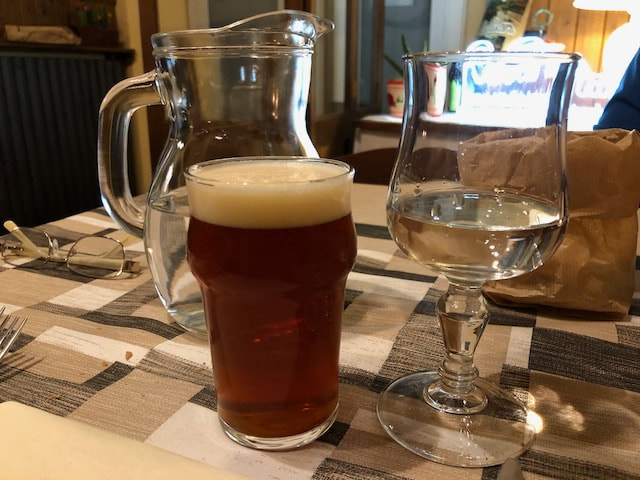
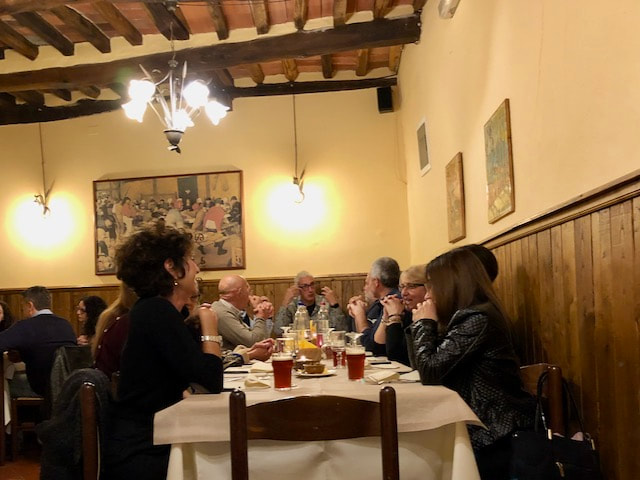
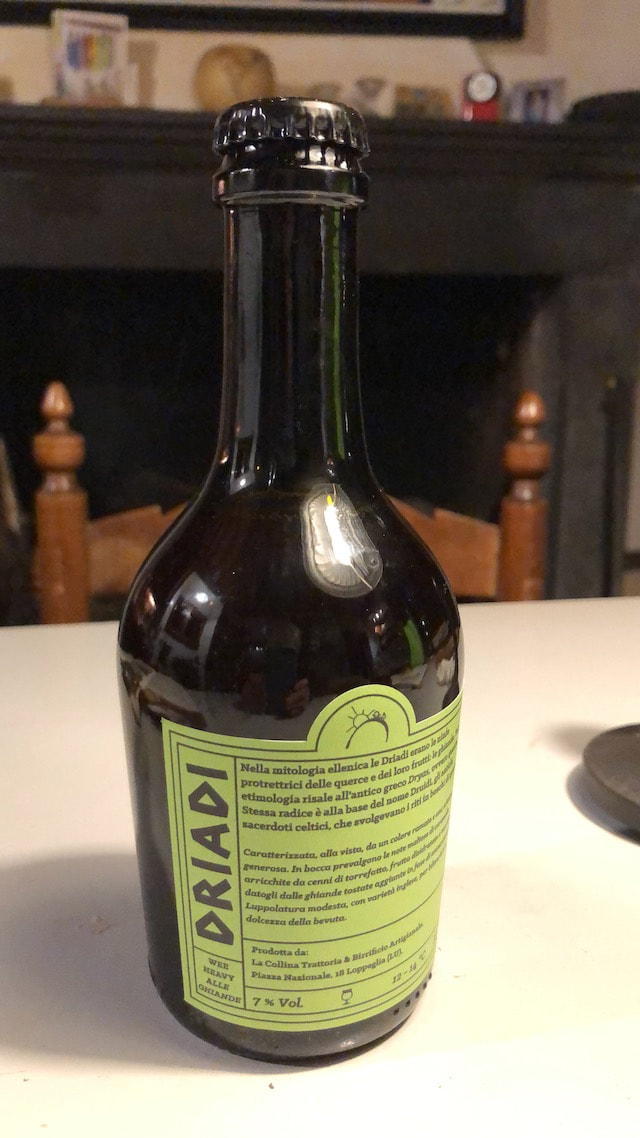
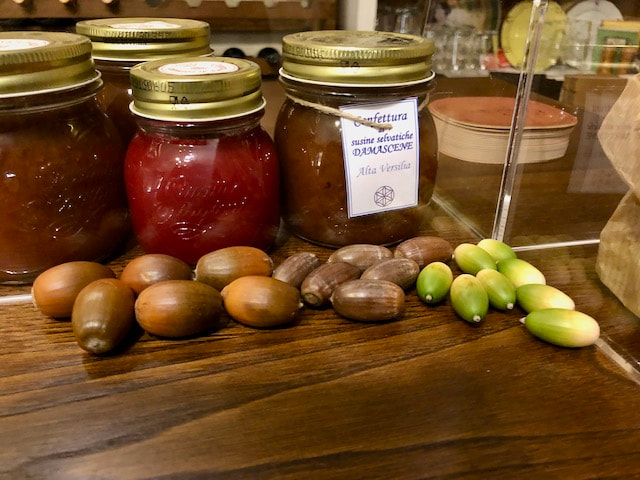
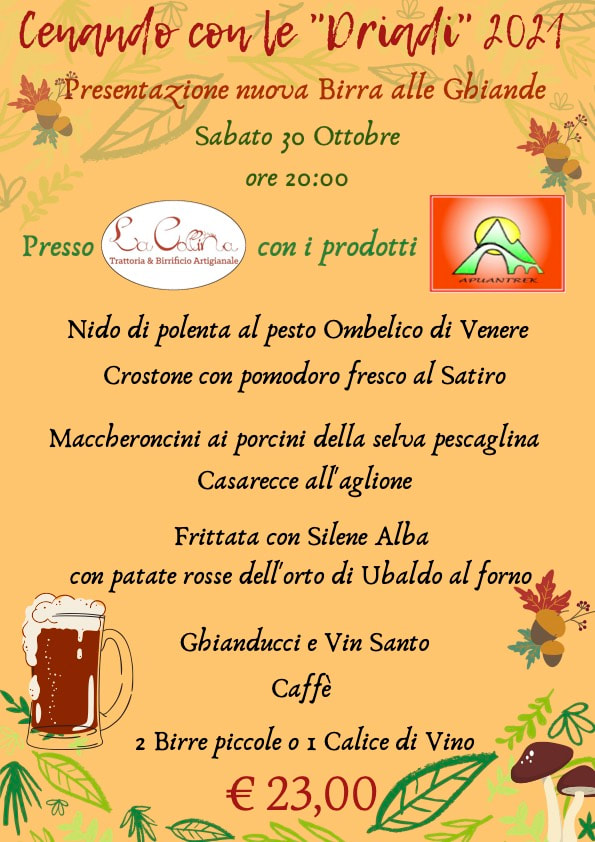
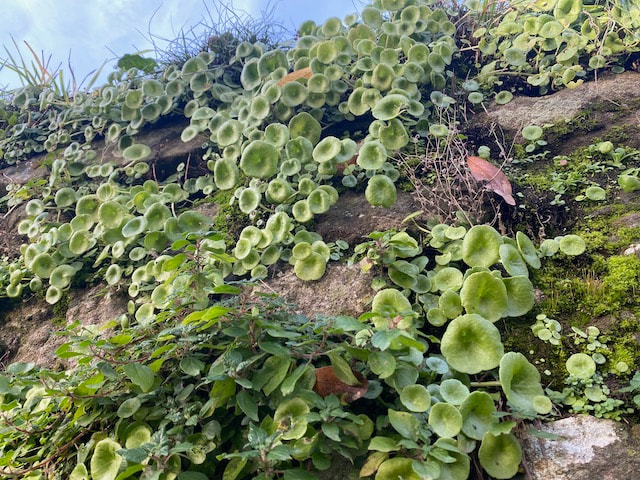
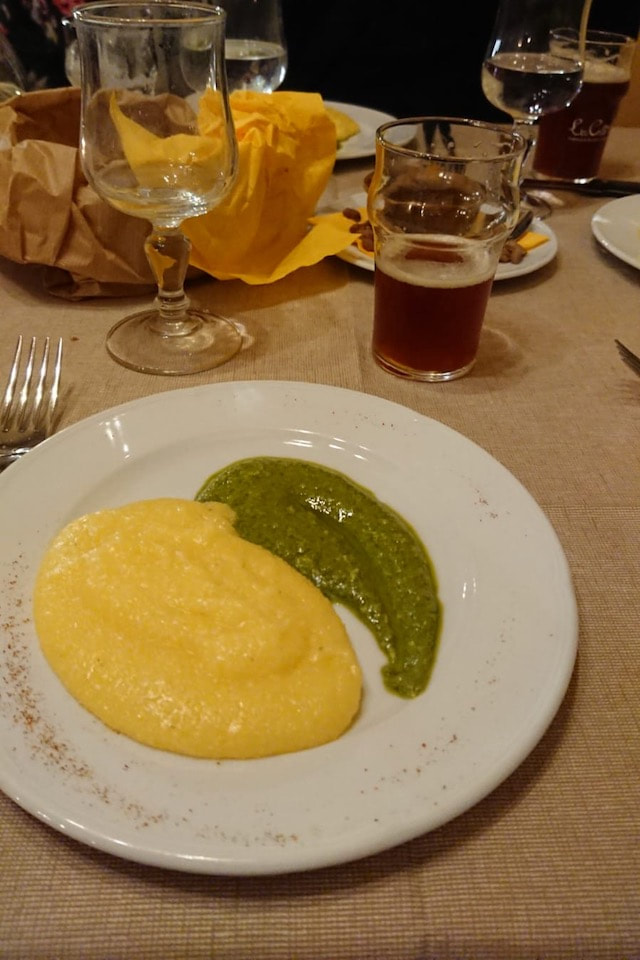
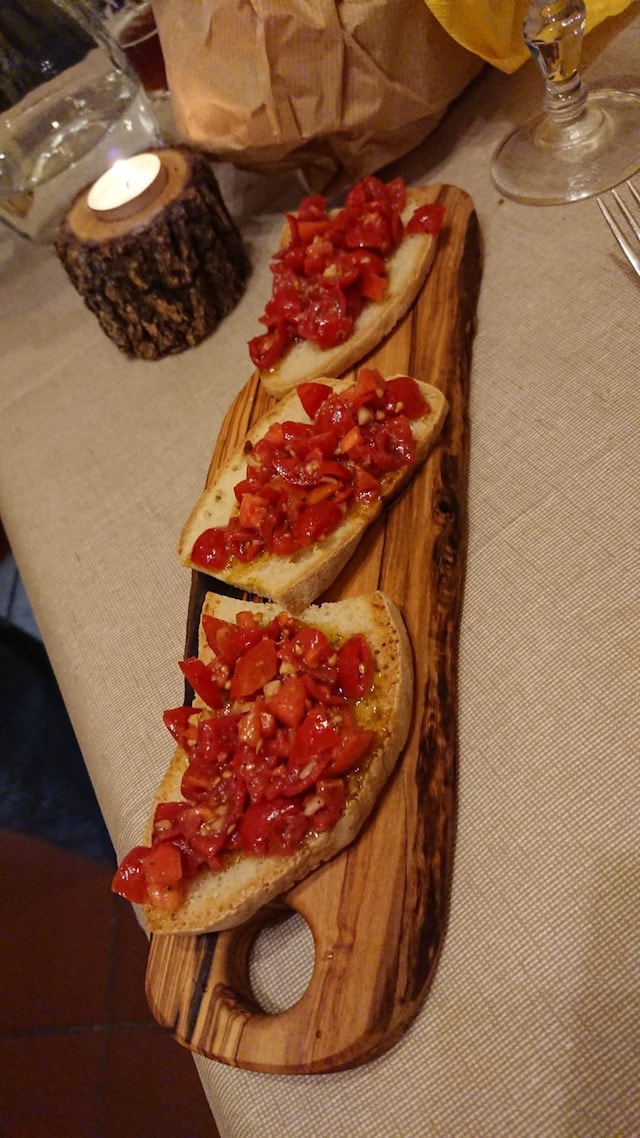
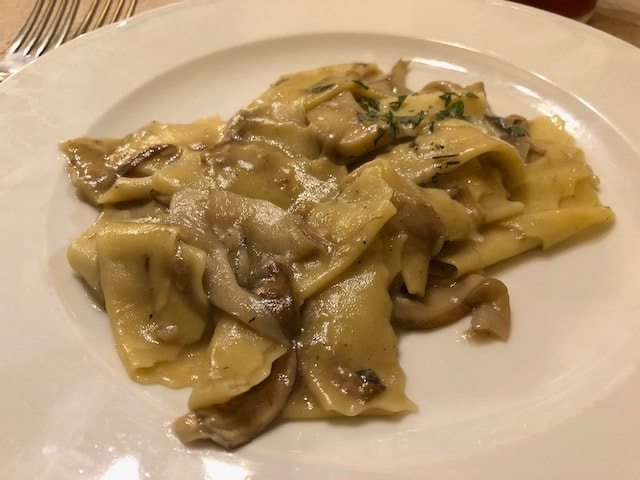
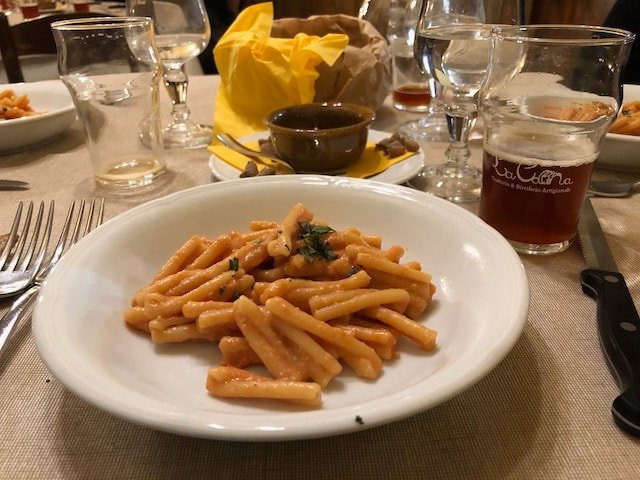
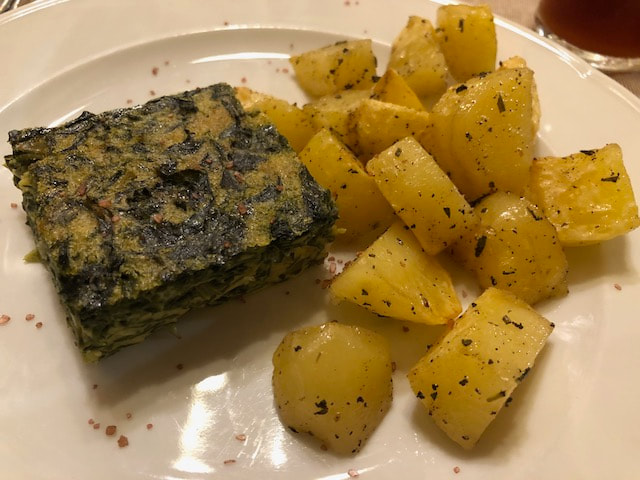
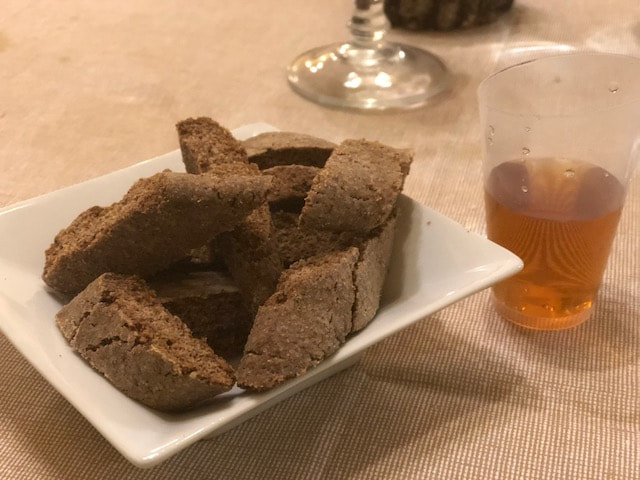
 RSS Feed
RSS Feed



